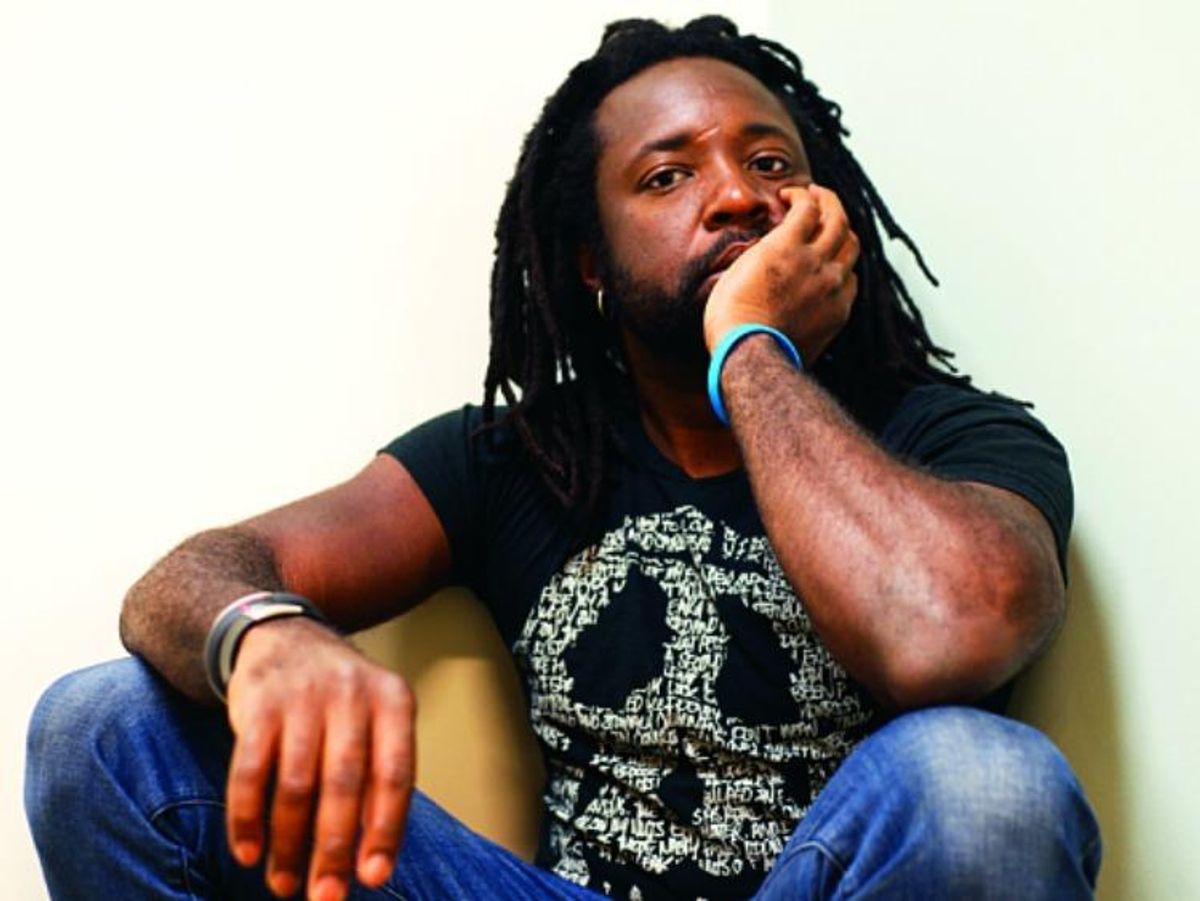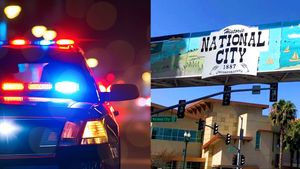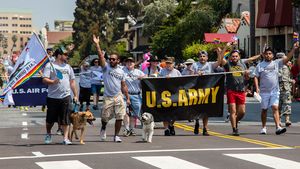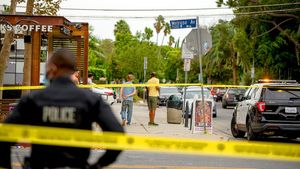Photo by Jeffrey Skemp for Riverhead Books
Jamaican novelist Marlon James was awarded the 2015 Man Booker Prize for his novel, A Brief History of Seven Killings, which is inspired by the attempted assassination of Bob Marley in the 1970s. Michael Wood, chair of the judging panel, called it the "most exciting book" on this year's list, but, adding: "It is not an easy read. It is a big book. There is some tough stuff and there is a lot of swearing but it is not a difficult book to approach."
When asked earlier this year if identifies with the gay character in his novel, the murderous, literature-quoting gangster Weeper, he told a Telegraph reporter:
"I don't know if any of me found its way into that. But it was very important to me that there were gay characters in the book - to reflect the gayness and hypocrisy in Jamaica."
After being outed while still in Jamaica, James tried to have a straight relationship that gave him a sense of validation. When asked if had to leave his home country "to explore his sexuality," he responded:
"Not so much explore. But simple things - you might want to walk down the street and hold somebody's hand one day. When you grow up in a homophobic country, you're sitting on a timebomb."
James has been teaching English at Macalaster College in Minnesota since 2007. The success of his first novel, The Book of Night Women, helped land him the job, and the job finally gave him, at the age of 37, a means of escape. The Caribbean nation's homophobia is notorious, and while James was able to find a way to get out, many more are not as fortunate. "From Jamaica to Minnesota to Myself," printed in the New York Times, tells of his physical and psychological journey. Below are a few excerpts:
"At 28 years old, seven years out of college, I was so convinced that my voice outed me as a fag that I had stopped speaking to people I didn't know. The silence left a mark, threw my whole body into a slouch, with a concave chest, as if trying to absorb impact. I'd spent seven years in an all-boys school: 2,000 adolescents in the same khaki uniforms striking hunting poses, stalking lunchrooms, classrooms, changing rooms, looking for boys who didn't fit in. I bought myself protection by cursing, locking my lisp behind gritted teeth, folding away my limp wrist and drawing 36-double-D girls for art class. I took a copy of Penthouse to school to score cool points, but the other boys called me 'batty boy' anyway -- every day, five days a week. To save my older, cooler brother, I pretended we weren't related."
Of his first trip to New York:
"Anonymity was a sea to dive into. Stonewall was a club to pass by -- I was years away from having the guts to go in. Besides, I had no friends. In store windows, I saw a person who took me by surprise at first. The Strand Book Store, Tower Records, Other Music, Shakespeare & Co.; each was a step further away from the self I had left behind in another country."
After being offered a job at Macalaster College, James packed up all his belongings, knowing he was leaving Jamaica for good.
"In less than a year, I moved out of school housing to my first real apartment, and a young man who was my neighbor knocked on my door, asking, 'Hey, you wanna smoke a bowl with us?' His name was Alex, and his friend across the landing was John-John. Two handsome straight boys who adopted me and became partners in finding me a life, mostly by getting me drunk at the Irish bar up the road.
I had never set foot in a gay bar without paranoia pushing me back out. During Gay Pride week, Alex and John-John dragged me to one called Camp, which was decorated with disco balls and drawings of octopus tentacles. Alex dressed as a cowboy, John-John as Travolta in 'Saturday Night Fever,' both addressing themselves to people who hadn't asked as my 'bitches.' I was almost a cowboy, with a western shirt, vest and boot-cut jeans. I wasn't quite sure what was supposed to happen, and neither were they, so we just drank."
"Three years later, my best friend, Ingrid, visited from Jamaica. She looked at my walls, covered with photos and posters, books all the way to the ceiling, four shelves of vinyl, copies of GQ, Bookforum and Out magazines scattered everywhere, my 'simile is like a metaphor' T-shirt, then at my face and said: 'This is so you, dude. I've never seen you as you before.'"

























































































Did 'The White Lotus' waste Lisa's acting debut?